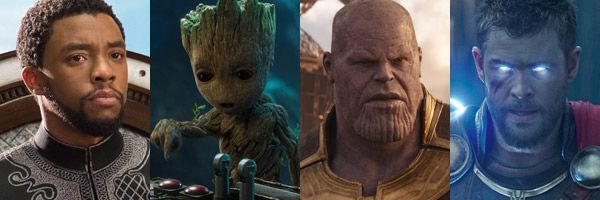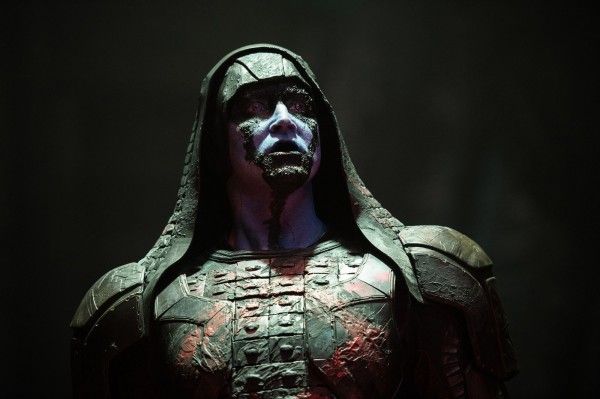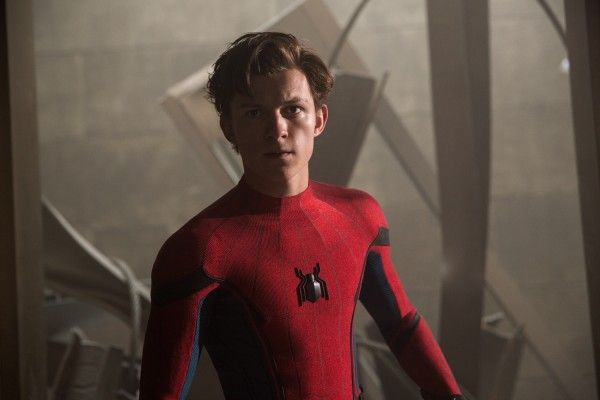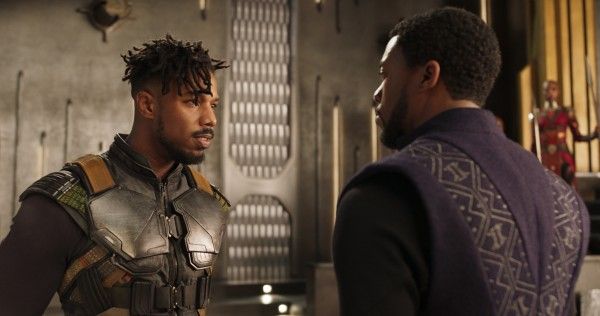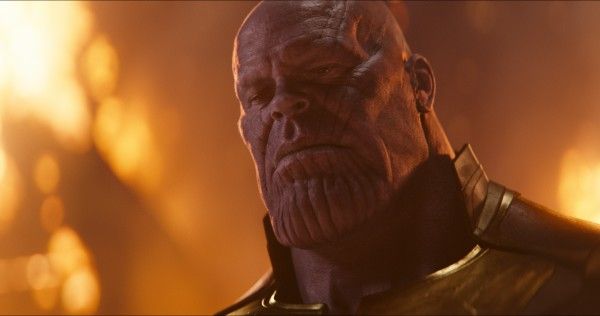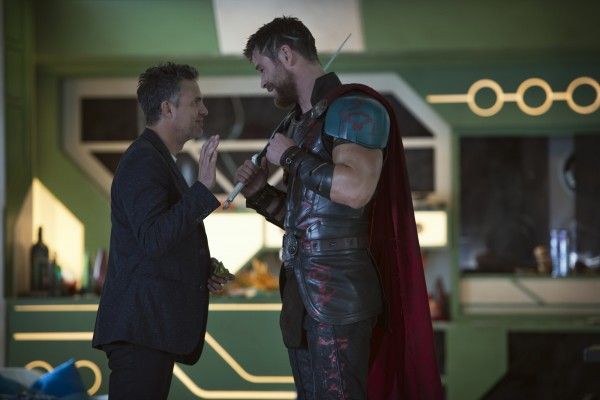Spoilers ahead for all Marvel movies through Infinity War.
From the very beginning, Marvel Studios films have taken ambitious leaps. From the very first Marvel Studios movie, Iron Man, they were bucking convention—that film ends with Tony Stark exposing himself as Iron Man, thus doing away completely with the “secret identities” that proved a cornerstone of successful superhero movies like Spider-Man and Batman Begins. And of course The Avengers was an entire movie built around the bold decision to bring together different characters from different films into the same movie in a way that felt cohesive and yet true to the various characters’ nature.
But recently, Marvel Studios has gotten even more ambitious with its choices, and there’s a very good reason for that: the dissolution of the Marvel Creative Committee. The Marvel Creative Committee was a group of individuals who would give notes on Marvel Studios productions throughout the development process. As reported by Birth.Movies.Death, this committee partially consisted of Marvel Comics writer Brian Michael Bendis, former Marvel Comics editor-in-chief Joe Quesada, Marvel Comics publisher Dan Buckley, and president of Marvel Entertainment Alan Fine.
While in theory this committee seems like a great sounding board, in practice it served as a continual source of frustration for the filmmakers involved with Marvel Studios movies. Guardians of the Galaxy filmmaker James Gunn said they suggested his film ditch its 70s-infused soundtrack. Gunn also said the creative committee’s notes negatively impacted the “messy plot villain stuff” related to Ronan in the first Guardians. The creative committee’s notes were also a source of frustration for filmmaker Edgar Wright, and are reportedly a major reason he decided to depart Ant-Man before production began.
The Marvel Creative Committee also served as a roadblock of sorts during the development process, limiting the direct access filmmakers had to a yes or no answer from Marvel Studios president Kevin Feige, and indeed the dissolution of the Marvel Creative Committee in 2015 was a direct result of Feige’s major executive shakeups regarding the Marvel Studios structure.
In August of 2015, Feige successfully managed to reorganize the structure at Marvel Studios so that he was no longer reporting to Marvel CEO Ike Perlmutter, who served as a roadblock for years. Perlmutter comes from the toy world, and as an example of the authority he wielded, is the reason there were few Black Widow toys—Perlmutter argued that girl toys do not sell. Under the original structure, Feige had to get some major decisions OK’d by Perlmutter before moving ahead, and the two reportedly butted heads quite often.
But in 2015, fresh off the massive success of Guardians of the Galaxy and Avengers: Age of Ultron and after venting his frustrations to the Disney higher ups, Feige’s structure was reorganized so that Perlmutter no longer had control over Marvel Studios—i.e. the film side of Marvel. Instead, Feige would report directly to Disney studio chief Alan Horn. With this change, and with Marvel Studios now under greater control from Feige, the Marvel Creative Committee was dissolved.
And here we see a cause and effect. By the time the Marvel Creative Committee was dissolved Captain America: Civil War had already been shot and Doctor Strange was deep into pre-production, but the next four films out of the pipeline would be developed, written, shot, and edited without any sort of input from the Marvel Creative Committee. And it’s no surprise that those four films happen to be the boldest Marvel has ever made.
It begins with Guardians of the Galaxy, Vol. 2, a sequel to a massively popular film that’s essentially a hangout movie with no plot. Then we have Spider-Man: Homecoming, which saw Marvel Studios partnering up with Sony Pictures in a deal that gave Marvel exactly zero percentage of the box office. And then Thor: Ragnarok, which radically changes the character of Thor into more of a comedy lead with an entire film that takes very little of anything seriously. Obviously after that you have Black Panther, Marvel’s most explicitly political film to date and one with very strong thematic ties to the socio-political world we live in today. And finally Avengers: Infinity War, a major CG-filled blockbuster movie that concludes with the death of half the universe’s population, including many favorite MCU characters.
All of these movies break the rules of what a superhero blockbuster is supposed to be. You’re supposed to have a strong MacGuffin and easy-to-follow plot, whereas Guardians 2 is happy meandering and digging deep into characters. You’re supposed to look out for your own interests as a studio, not partner up with a rival and take no profits on Spider-Man: Homecoming. You’re supposed to have consistency of character across sequels, not essentially reboot your protagonist with a wildly different tone in Thor 3. You’re definitely not supposed to be political, instead attempting to appeal to the widest possible audience—something Black Panther absolutely eschews. And you’re supposed to leave your audience at the end of your major blockbuster feeling happy and satisfied, not emotionally distraught.
And yet, Feige believed in the visions that Gunn, Jon Watts, Taika Waititi, Ryan Coogler, and Joe and Anthony Russo had for these Marvel Studios movies, and he saw them through to the end. It’s reasonable to assume if that Marvel Creative Committee had been in place, perhaps some of the edges of these films would have been softened. Maybe even Ryan Coogler would have walked away from Black Panther. Indeed, it should be noted that Ava DuVernay was first offered the chance to direct Black Panther when the Marvel Creative Committee was still in existence, and she later said she opted not to direct the film because she realized it would lack her own specificity of vision.
Even Infinity War, which by and large is a pretty standard explosion-filled superhero movie, ends in a really bold way: by killing off a large portion of its cast. Obviously some (all?) of this will be undone, but Infinity War still ends on an incredibly depressing note, without the flashy font that usually graces the screen as the credits roll. Whatever you think about that ending or the film as a whole, that’s a bold choice for one of the most anticipated blockbusters of the year.
So all of this to say, while Marvel certainly found success in its first 10 years, it really does feel like they’re hitting another gear right now. They’re not content to play it safe, and with the Creative Committee gone, they’re swinging for the fences and not looking back.

